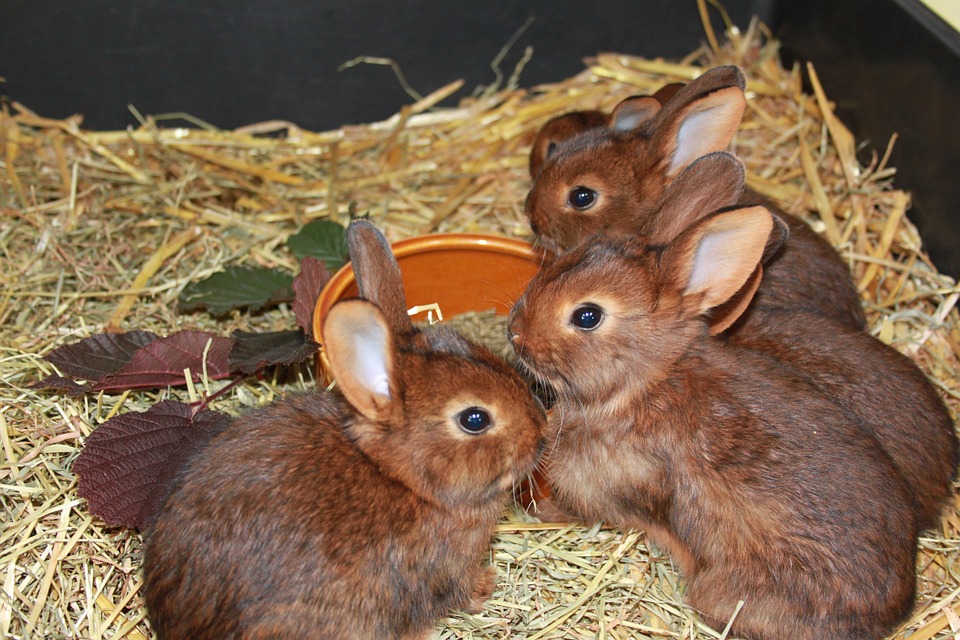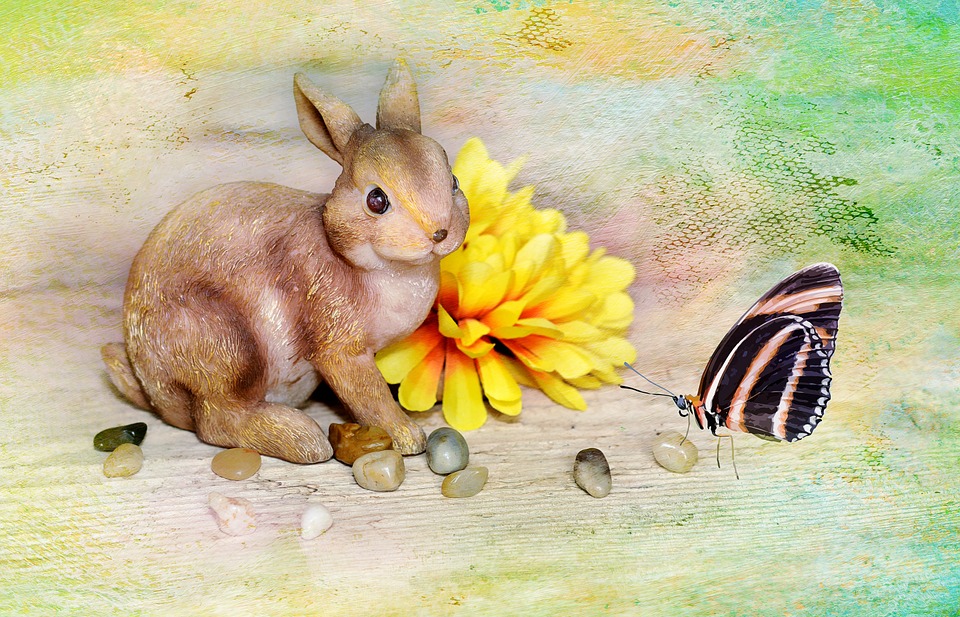This article explores the intriguing question of whether rabbits can safely enjoy cheese. We'll delve into the nutritional composition of cheese, its potential benefits and risks for rabbits, and offer a detailed guide to help you determine if and how cheese might be included in your rabbit's diet.
Part 1: Understanding the Nutritional Content of Cheese

1.1. Macronutrients: A Closer Look
- Protein: While cheese can provide protein, rabbits primarily obtain their protein from high-fiber hay and grasses. Excessive protein intake can lead to urinary tract problems and other health issues.
- Fat: Cheese contains varying amounts of fat, depending on the type and processing. High-fat cheeses can contribute to obesity, liver problems, and pancreatitis in rabbits. It's crucial to opt for low-fat varieties or avoid them altogether.
- Carbohydrates: Cheese contains relatively low levels of carbohydrates, making it a less detrimental option for rabbits than sugary treats. However, remember that rabbits need a high-fiber diet, so too much cheese can disrupt their digestive balance.
1.2. Micronutrients: Potential Benefits and Risks
- Calcium: Cheese is rich in calcium, essential for strong bones. However, excessive calcium intake can lead to urinary tract issues, particularly in rabbits prone to bladder stones. Monitoring calcium levels is vital, especially if you decide to offer cheese.
- Vitamin A: Some cheeses, especially those made from cow's milk, provide Vitamin A. While rabbits can obtain Vitamin A from other sources, like leafy greens, supplementing with cheese might not be necessary.
- Vitamin B12: Cheese can offer additional Vitamin B12, a crucial nutrient for nerve function and energy production. Rabbits can synthesize some B vitamins, but cheese might offer an extra boost, especially in specific cases. However, it is not a primary source of this vitamin for rabbits.
Part 2: The Risks of Cheese Consumption for Rabbits

2.1. Lactose Intolerance: A Major Obstacle
- Rabbits lack the enzyme lactase, which breaks down lactose (milk sugar). This means they are lactose intolerant, making cheese consumption risky. Lactose can cause severe digestive upset, including diarrhoea, gas, bloating, and abdominal discomfort.
- The severity of lactose intolerance varies between rabbits. Some might experience mild discomfort, while others might exhibit severe reactions. It's always wise to err on the side of caution and avoid cheese altogether.
2.2. Digestive Issues: Beyond Lactose
- High Fat Content: High-fat cheeses can exacerbate obesity and related health problems, like liver issues, in rabbits. Even low-fat cheeses, if consumed regularly, can contribute to weight gain.
- Gastrointestinal Blockage: Cheese is challenging for rabbits to digest. Its composition, especially high-fat varieties, can lead to gastrointestinal blockages, a serious and potentially fatal condition. The risk is heightened in rabbits with pre-existing digestive issues.
2.3. Nutritional Imbalances: Disrupting the Diet
- Excess Calcium: While essential for bone health, excessive calcium can lead to urinary tract problems, particularly the formation of bladder stones. This is a concern, especially for rabbits prone to urinary issues. It's crucial to monitor calcium levels and limit cheese intake.
- Lack of Fiber: Cheese is low in fiber, a crucial component of a healthy rabbit diet. Fiber helps regulate digestion, prevent constipation, and provides essential nutrients. A lack of fiber can lead to digestive problems and other health issues.
Part 3: Exploring Safe Cheese Options for Rabbits (With Cautions)
3.1. Low-Fat, Lactose-Free Varieties: The Best Choices (With Limitations)
- Cheddar Cheese: Low-fat cheddar cheese has lower lactose and fat content compared to full-fat cheddar. While it might be less detrimental than other cheese types, introducing it requires extreme caution and moderation. It's important to remember that even low-fat cheese can cause digestive upset in rabbits.
- Goat Cheese: Goat cheese naturally contains less lactose than cow's milk cheese. However, it's still crucial to choose low-fat varieties and introduce them slowly. Even with lower lactose content, goat cheese can still cause digestive problems.
- Hard Cheeses: Hard cheeses like Parmesan and Pecorino have a lower lactose content and are potentially easier for rabbits to digest. However, they should only be offered as rare treats in minuscule amounts. They are not a safe substitute for a balanced rabbit diet.
3.2. Introduction Strategies: Gradual and Minimal
- Start Small: Begin with a minuscule piece, no larger than a pea, and observe your rabbit's reaction carefully. Monitor for signs of digestive upset over several hours.
- Gradual Increase: If no adverse effects are observed, you can gradually increase the amount over several days. The increase should be minimal, ensuring your rabbit tolerates the cheese well.
- Never Force-Feed: Rabbits have sensitive digestive systems, and forcing them to eat cheese can lead to serious problems. Offer cheese as a treat, not a staple food, and respect your rabbit's preferences.
Part 4: Recognizing Signs of Digestive Distress
4.1. Early Warning Signs: Prompt Intervention
- Diarrhoea: Loose or watery stools are a clear indication of a reaction to cheese. Stop feeding cheese immediately and monitor your rabbit's condition.
- Gas and Bloating: These symptoms point to lactose intolerance or digestive upset. It's crucial to stop cheese intake and observe your rabbit closely.
- Reduced Appetite: A decrease in appetite can indicate a digestive blockage or other health problems. Seek veterinary attention if your rabbit exhibits this sign.
- Lethargy: Unusual sleepiness or a lack of energy can be a sign of illness, possibly related to cheese consumption. Contact your veterinarian for advice.
Part 5: Prioritizing Safe and Healthy Treats
5.1. Healthy Alternatives: Nourishing and Delicious
- Fresh Fruits and Vegetables: Offer a variety of fruits and vegetables, like carrots, apples, and berries, in moderation. Ensure they are washed and free from pesticides.
- Hay and Grass: The foundation of a healthy rabbit diet is hay and grass, providing essential fiber and nutrients. Offer Timothy hay as a primary source of sustenance.
- Commercial Rabbit Treats: Choose commercial rabbit treats low in sugar and fat, and offer them sparingly. These treats should complement a balanced diet, not replace essential foods.
5.2. Maintaining a Balanced Diet: A Holistic Approach
- A balanced diet is crucial for a rabbit's overall health and well-being. Avoid processed foods, sugary treats, and human foods that can be harmful.
- Consult with a veterinarian to ensure your rabbit's diet meets its individual needs, considering age, breed, and health status. A veterinarian can provide tailored dietary recommendations.
Part 6: FAQs (Frequently Asked Questions)
6.1. Can rabbits eat cheese every day?
No, rabbits should not eat cheese every day. It is best to offer cheese as a rare treat, in minuscule amounts, and only if your rabbit tolerates it well. Regular cheese consumption can lead to digestive problems and nutritional imbalances.
6.2. What type of cheese is safest for rabbits?
Low-fat, lactose-free cheeses, such as low-fat cheddar or goat cheese, are considered safer options than high-fat or full-fat varieties. However, even these should be introduced gradually and in small amounts, with careful monitoring for adverse effects.
6.3. What are the signs of a reaction to cheese in rabbits?
Signs of a reaction to cheese can include diarrhoea, gas, bloating, reduced appetite, lethargy, and other digestive issues. If you observe any of these symptoms, stop feeding cheese immediately and consult with a veterinarian.
6.4. Is it okay to give my rabbit cheese with mold on it?
No, never give your rabbit cheese with mold on it. Mold can be toxic to rabbits and cause serious health problems. Always ensure the cheese is fresh and free from mold.
6.5. Can baby rabbits eat cheese?
It is not recommended to feed cheese to baby rabbits. Their digestive systems are still developing, making them more susceptible to digestive upset and potential health issues.
6.6. How much cheese can a rabbit safely eat?
The amount of cheese a rabbit can safely eat depends on its individual tolerance and susceptibility to lactose intolerance. However, it's always best to start with a tiny piece (no larger than a pea) and increase gradually, observing your rabbit's response carefully.
6.7. Is it better to give my rabbit cheese or yoghurt?
While some yoghurt options may be lower in lactose, both cheese and yoghurt can cause digestive problems in rabbits due to lactose intolerance. It's best to avoid both and stick to safe and healthy alternatives.
6.8. Can rabbits eat cheese in their hay?
It's not recommended to mix cheese into your rabbit's hay. This can make the hay less palatable and lead to uneven consumption of essential nutrients. It's best to offer cheese separately, if at all, and only in small quantities.
6.9. Are there any specific breeds of rabbits that can tolerate cheese?
There is no evidence to suggest that specific rabbit breeds are more tolerant of cheese than others. All rabbits are lactose intolerant, and even low-fat, lactose-free cheese can cause digestive issues. It's essential to prioritize a balanced diet for all rabbit breeds.
6.10. What if my rabbit seems to enjoy cheese and shows no negative effects?
While it might seem like your rabbit enjoys cheese and tolerates it well, it's important to remember that even small amounts can lead to long-term health problems. The risks associated with cheese consumption outweigh the potential benefits. Prioritize a balanced diet with safe and healthy treats, and always consult with your veterinarian for personalized advice.
Everyone is watching
-

Do Rabbits Lay Eggs? (The Surprising Truth)
OTHER TYPES OF PETSThis article will unravel the common misconception that rabbits lay eggs, exploring the fascinating world of r...
-

Can Rabbits Eat Grapes? A Guide to Safe Rabbit Treats
OTHER TYPES OF PETSThis comprehensive guide will explore the safety and suitability of grapes for rabbits, providing detailed inf...
-

What's a Group of Rabbits Called? (A Comprehensive Guide)
OTHER TYPES OF PETSThis article delves into the fascinating world of rabbits, exploring the various terms used to describe a grou...
-

Predators That Hunt Rabbits: A Guide to Natural Enemies
OTHER TYPES OF PETSI've always been fascinated by the circle of life, that delicate dance between predator and prey. Growing up ...
-

Are Rabbits Nocturnal Animals?
OTHER TYPES OF PETSThe question of whether rabbits are nocturnal animals is a fascinating one, with a surprisingly complex answer...
